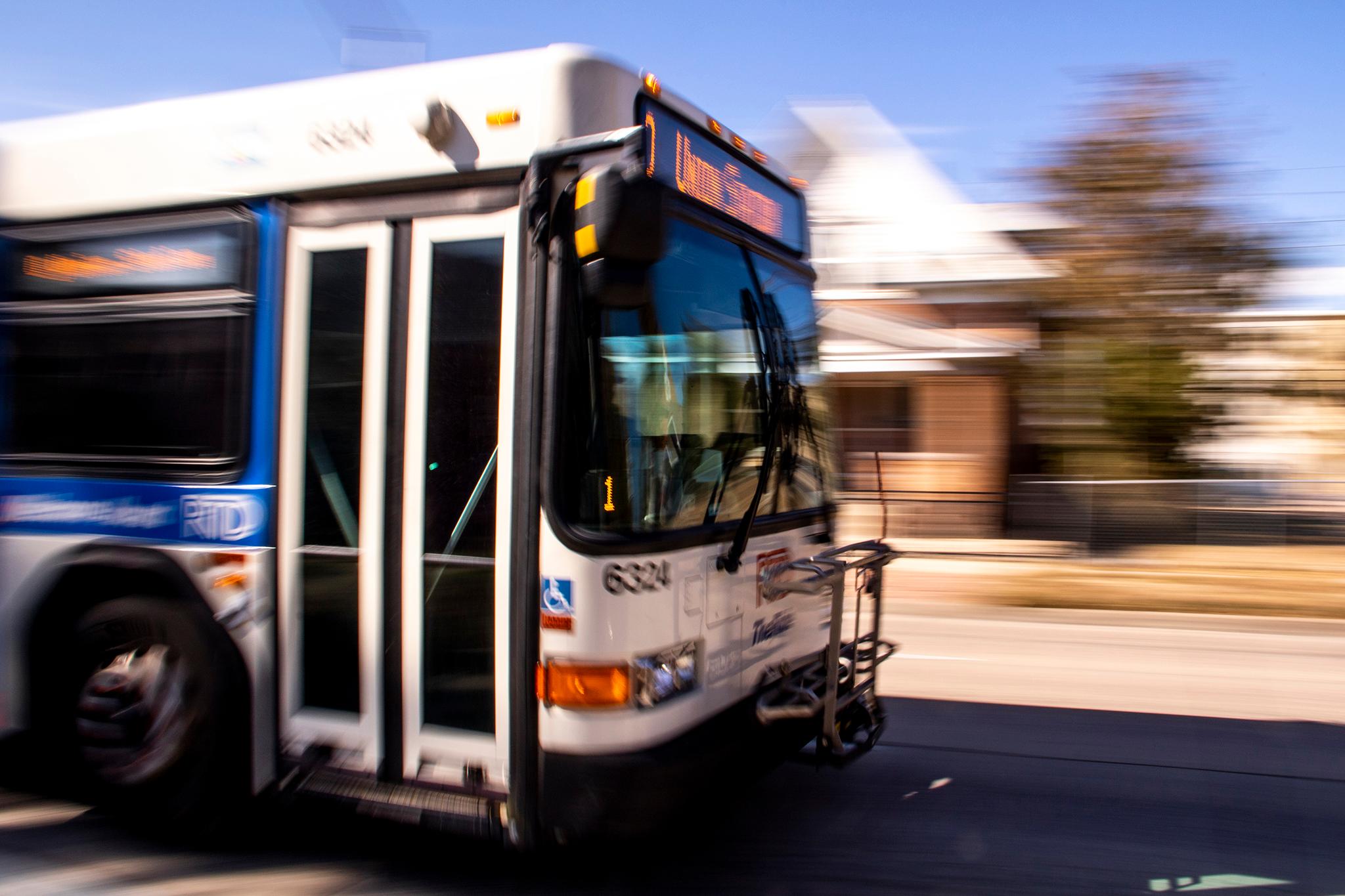
The new coronavirus hasn’t yet had a meaningful impact on the Regional Transportation District’s already thinly-stretched workforce, CEO and General Manager Paul Ballard said Thursday.
But if enough bus drivers and light rail operators were to call in sick, RTD would make service cuts — starting with the least-popular routes.
“It's certainly not ideal,” said Ballard, an industry veteran who’s overseen transit agencies elsewhere during natural disasters and the Ebola outbreak. “But in an emergency situation, if we get to this level, it's the most responsible thing that we can do.”
Such a decision would be made on an hour-by-hour basis, he said. RTD’s annual performance report shows the ridership and sales-tax subsidy break down for each of its hundred-plus routes.
In January, public transportation temporarily shut down completely in Wuhan, China, where the coronavirus first began to spread. One of Ballard’s lieutenants has been in meetings with state and local officials, and no one has yet suggested shutting down service or encouraging people to stay off transit.
“I certainly don't think we will get to that point,” he said. “At least I hope not.”
RTD announced in February that it has stepped up the cleaning regimen for its buses and trains and that its pandemic plan would get an update. That plan was last updated during the H1N1 flu scare of 2009-2010. It called for moving to an augmented Saturday service schedule on weekdays.
Finishing touches are being made to the new plan now, said Barbara McManus, executive manager of the RTD Board, at a board committee meeting Thursday. But it may not be made public because of “confidential” information, she said. The board itself is working on a plan to meet remotely in the coming weeks.
As schools close and employers encourage their employees to work from home, the agency is bracing for an impact on ridership. RTDs controller, Doug Macleod, told the board of directors on Tuesday that the agency has begun collecting data so it can compare ridership from before the coronavirus outbreak to ridership afterward.
Heather McKillop, the agency’s CFO, said her staff has also prepared revenue estimates that take into account potential ridership losses. After the coronavirus hit the Seattle area especially hard, transit agencies there have seen significant ridership declines.
“We’re hoping it doesn’t get to that point here,” she said.
RTD has between six and 12 weeks of cash on hand to keep operations going, Ballard said, which he said was in line with other transit agencies. The agency would likely reduce expenses by cutting service to a level that met demand, he added.
It’s also possible the agency could see reimbursement from the Federal Emergency Management Agency, but that could take years to happen. “It doesn't help in the short run,” he said.
RTD has encouraged riders to stay home when they’re sick and practice good hygiene. Those steps, Ballard said, are key for everyone to follow.
“We will get through this,” he said. “We just don't know how long that's going to take.”








